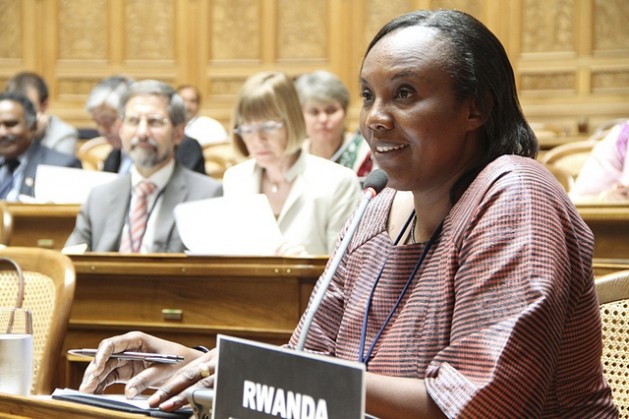On October 16, 2006, the proposed refugee admissions report for Fiscal Year (FY) 2007 was submitted to Congress on behalf of President George W. Bush. The report is submitted yearly in fulfillment of the requirements of § 207(e)(1) to (7) of the INA. The report proposes substantial changes in the allocation of visas for various parts of the world. Of the five regions articulated in the report from year to year, only one region, Latin America/Caribbean, remains unchanged when comparing the FY 2006 ceiling to the FY 2007 proposed ceiling (both are 5,000 refugees).
Of the other four regions, the report recommends increasing the ceiling for two and decreasing the ceiling for two. With regard to recommended increases in ceilings, the report proposes to increase the ceiling for Africa by 10% from 20,000 in FY 2006 to 22,000 in FY 2007 and to increase the ceiling of refugees admitted from the Near East/South Asia region by 10% from 5,000 in FY 2006 to 5,500 in FY 2007. With regard to recommended decreases, the report recommends a 27% decrease in allocations for East Asia from 15,000 in FY 2006 to 11,000 in FY 2007 and a dramatic decrease in allocations for Europe and Central Asia: a proposed 57% decrease from 15,000 to 6,500.
In addition to the proposed regional allocations, the report specifies that special circumstances exist so that, for the purpose of admission under allocations established above and pursuant to INA § 101(a)(42)(B), certain persons, if they otherwise qualify for admission, may be considered as refugees of special humanitarian concern to the U.S. although they are within their countries of nationality or, in the case of persons having no nationality, within the country in which such persons are habitually residing.
The report also proposes a worldwide priority system for FY 2007. The worldwide processing priority system sets guidelines for the orderly management and processing of refugee applications for admission to the U.S. within the established annual regional ceilings. These processing priorities are distinct from the issues of whether an applicant is legally admissible to the U.S. or meets the statutory “refugee” definition. A determination that a person falls within a particular processing priority only permits access to apply to the admissions program and does not entitle that person to admission to the U.S.
The report proposes three priority groups. Priority 1 is designated for individuals with compelling protection needs or those for whom no other durable solution exists who are identified and referred to the program by the United Nations High Commissioner for Refugees (UNHCR), a U.S. embassy, or a designated non-governmental organization (NGO). This processing priority is available to persons of any nationality. Priority 2 is used for groups of special humanitarian concern to the U.S. designated for resettlement processing.
The Priority 3 group focuses on family reunification cases. An underlying principle in the administration of the refugee admissions program is the importance of maintaining family unity. The report recommends that, in FY 2007, Priority 3 eligibility for a refugee interview be extended to nationals of 17 countries who are the spouses, unmarried children under 21, or parents of persons admitted to the U.S. as refugees or granted asylum or persons who are lawful permanent residents or U.S. citizens and were initially admitted to the U.S. as refugees or granted asylum.
Eligible nationalities are included following review of UNHCR’s annual assessment of refugees in need of resettlement, prospective or ongoing repatriation efforts, and U.S. foreign policy interests. Eligible nationalities listed for FY 2007 include Afghanistan, Burma, Burundi, Colombia, Congo (Brazzaville), Cuba, Democratic People’s Republic of Korea (DPRK), Democratic Republic of Congo (DRC), Eritrea, Ethiopia, Haiti, Iran, Iraq, Rwanda, Somalia, Sudan, and Uzbekistan.
Nothing in this article should be taken as legal advice for an individual case or situation. The information is intended to be general and should not be relied upon for any specific situation. For legal advice, consult and attorney experience in immigration law.
About Igbanugo Partners International Law Firm
Igbanugo Partners Int'l Law Firm is based in Minneapolis, Minnesota. It focuses on (1) U.S. immigration law and (2) international trade law in Sub-Saharan Africa.
- Web |
- More Posts(71)






